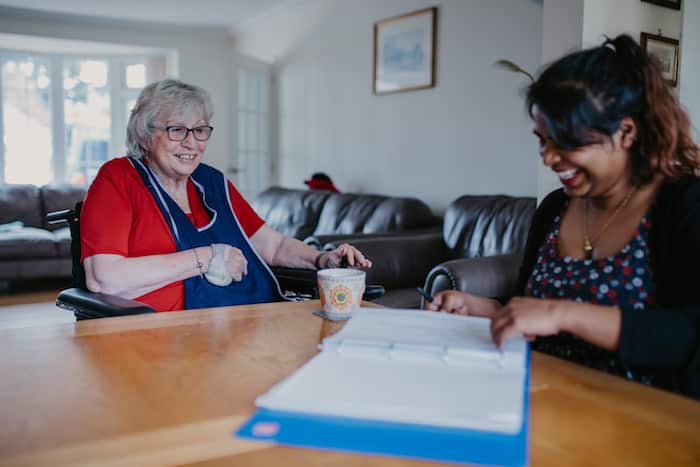This year has been unprecedented for many people and organisations, and that includes our live-in care service. But far from COVID-19 having a negative effect on the service, the complete opposite is true.
In researching different types of care, many people have come to understand that live-in care is a particularly safe form of care, especially during the global coronavirus pandemic. That’s resulted in enquiries about our service being up 43% compared to before COVID-19. And the number of new clients has nearly doubled, up 48% in the same period.
So we’re currently recruiting hundreds more live-in care workers. We offer great rates, pay and benefits, wrapped up in a rewarding career.

The benefits of live-in care
With elder live-in care, you choose who comes into your home. If you need to isolate, you can do that with your care worker who’s there to support you 24/7. If it’s just you and your care worker in your home, it’s much easier to limit the risk of infection.
To further protect clients we’re currently doing assessments over the phone, rather than in person. And we’re able to put support in place within 24 hours, for those in need of emergency care.
Some recent feedback from a client’s family illustrates perfectly the peace of mind that live-in care brings to clients’ families, especially when it comes to dementia care at home:
Agincare provided live-in care for my mother-in-law for eight months during very challenging times (lockdown / Covid etc). Our initial assessment was very thorough and we were quickly matched with a lovely Moldovan lady who was very experienced and developed a lovely relationship with my mother-in-law, and us as family. At all times during her advancing dementia we felt she was safe and very well cared for.
Isolating, but not isolated
And if you are isolating, having your care worker there means you aren’t isolated. Over the past few months many of us have had an insight into how it feels to be physically cut off from our friends and family.
For many older people, isolation is part of their daily lives. Trying to stay fiercely independent can actually result in them going for days without seeing or talking to another person.
But with 24-hour care at home, there’s always someone there to talk to and have a laugh with. Someone to help you through and give you that human connection that we all need.
When tight restrictions meant we couldn’t maintain our ‘normal’ social life, live-in care workers have been a lifeline. They’ve played a critical role: ordering shopping, sorting out repeat prescriptions and making sure that their clients stay well and happy.
During lockdown many of our care workers stayed longer than usual with their clients, without a break. Their commitment and kindness meant the world to our clients, especially as everything else seemed to have been turned upside down. Their consistency of care in a familiar home environment made life that bit easier.
Keeping in contact
Our care workers have helped people keep in contact with loved ones. Lots of our clients are now pretty proficient in FaceTime and WhatsApp. Video calls have become the norm in many households!
Hygiene and infection control
All our care workers are trained in good hygiene and infection control. And during the COVID-19 pandemic these skills and experience have come into their own.
Our care workers follow the latest Government and Public Health England guidance and are equipped with the necessary PPE.
Recently we surveyed our live-in care clients to see what they thought of the service and their care worker. The responses underlined the positive impact of live-in care. Of the 80 people who responded, 97% said that the service they received from Agincare has helped to improve their quality of life.
And as we live through the COVID-19 pandemic, we were particularly pleased that 95% of respondents said that they felt comfortable and safe with their care workers.
